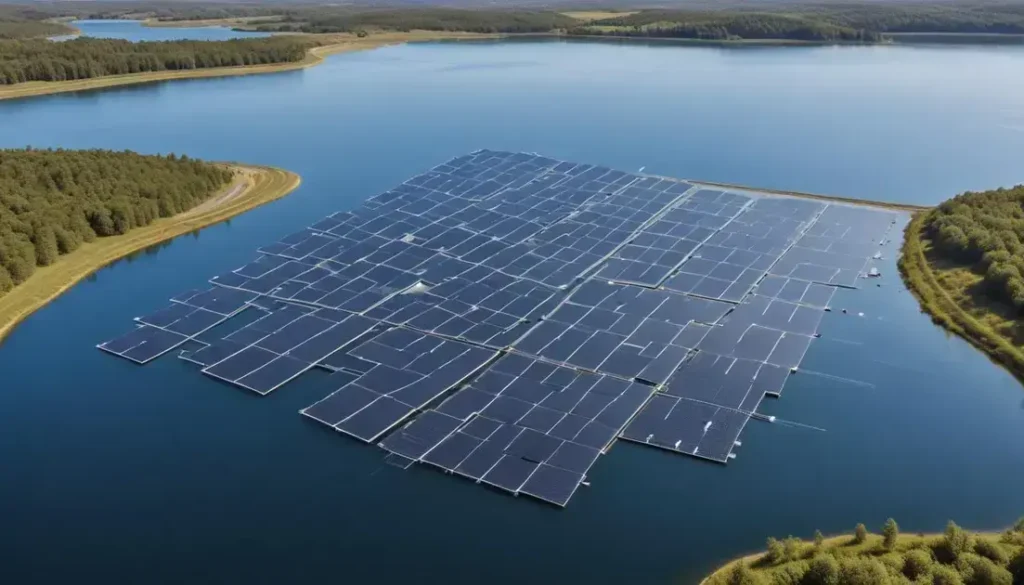The energy transition presents substantial opportunities for UK businesses by enabling investment in renewable technologies, fostering strategic partnerships, and aligning with supportive government policies that enhance sustainability and profitability.
In an evolving energy landscape, the **energy transition** is set to redefine investment strategies and leadership roles. Explore the latest changes at Quinbrook and what that means for the UK market.
Quinbrook’s new leadership structure
Quinbrook’s recent restructuring has placed a new focus on leadership that fosters innovation in the energy sector. The appointment of Brian Restall as CEO marks a significant shift in the company’s direction. Restall brings a wealth of experience in renewable energy, aiming to enhance Quinbrook’s position as a leader in the energy transition.
Leadership Focus: The new leadership team is dedicated to driving projects that not only meet but exceed current sustainability standards. Their strategic vision includes expanding investments into clean energy technologies while ensuring compliance with evolving regulations. They aim to deliver value not only to shareholders but also to the communities they serve.
Furthermore, this restructuring aims to create a more agile operational model that can respond quickly to market changes. It prioritizes collaboration across teams, ensuring that innovation is at the forefront of every project. With a renewed emphasis on strategic partnerships, Quinbrook seeks to build alliances that will foster growth and tackle challenges within the energy landscape.
Competitive Advantages: This leadership shift positions Quinbrook to leverage its extensive network and industry expertise. As global demand for sustainable solutions continues to rise, their refined approach places them ahead of competitors, enhancing their ability to capture market opportunities.
Brian Restall’s vision as CEO
Following his appointment, Brian Restall has detailed a forward-thinking vision for Quinbrook that aims to redefine the company’s role in the renewable energy sector. He emphasises the importance of sustainable investments, ensuring that the company’s projects align with global climate goals. This holistic approach not only addresses current energy challenges but also prioritises long-term viability.
Strategic Initiatives: Restall plans to implement innovative strategies that focus on enhancing operational efficiency. This includes leveraging cutting-edge technologies that optimise energy production and reduce environmental impact. He recognises that technological advancements are crucial for staying competitive in a rapidly evolving market.
Furthermore, Restall envisions fostering strong partnerships with local communities and stakeholders. He believes that collaboration is key to driving successful projects that benefit both investors and the public. By engaging with various sectors, Quinbrook aims to create a resilient energy ecosystem that supports regional development.
Restall’s leadership style is characterised by transparency and inclusivity, encouraging a culture of open dialogue throughout the organisation. This approach not only motivates teams but also cultivates an environment where innovative ideas can flourish, ultimately positioning Quinbrook as a leader in the energy transition.
Impact on energy transition strategies
The impact of Quinbrook’s leadership changes on energy transition strategies is profound. As the organisation pivots towards a more sustainable model, it reinforces its commitment to innovative practices. These strategies encompass a diverse range of renewable energy solutions, which are essential for addressing climate change.
Investment in Renewables: With new leadership, a renewed focus on investing in clean energy technologies becomes paramount. This not only aligns with global energy goals but also positions Quinbrook at the forefront of the energy transition. By financing projects that harness wind, solar, and other sustainable sources, the company aims to significantly reduce carbon emissions.
Moreover, effective energy transition strategies are about more than just technology. They require collaboration with policymakers, industry stakeholders, and communities. Quinbrook’s commitment to engaging these groups ensures that projects are not only viable but beneficial to all parties involved.
Another important aspect is adapting to changing regulations. The leadership’s strategy emphasises the need for compliance with evolving regulatory frameworks, thus paving the way for market leadership. By staying ahead of legislation, Quinbrook enhances its ability to navigate the complex landscape of renewable energy deployment.
Opportunities for UK businesses
The changing landscape of renewable energy presents numerous opportunities for UK businesses. As companies like Quinbrook pivot to sustainable models, there is a growing demand for collaboration in clean energy projects. This shift not only enhances the UK’s position in the global market but also drives local innovation.
Investment Potential: UK businesses can seize the moment through investment in technologies that support the energy transition. Opportunities abound in sectors such as solar, wind, and energy storage. By participating in these markets, firms can drive their growth while contributing to a sustainable future.
Moreover, Quinbrook’s focus on community engagement opens pathways for local firms to partner on projects that benefit both the environment and the economy. Through strategic alliances, businesses can enhance their offerings, focusing on areas like efficiency improvements and sustainable practices.
The regulatory environment in the UK also supports this shift, providing incentives for companies investing in renewables. This creates a fertile ground for firms to innovate and adapt, establishing themselves as leaders in the energy transition. By leveraging government support, UK businesses can gain a competitive edge in the evolving market.
Future outlook for renewable investments
The future outlook for renewable investments is promising as the shift towards sustainable energy accelerates. Experts predict significant growth in the sector, driven by increasing global demand for clean energy solutions. As nations commit to reducing carbon emissions, firms investing in renewables are expected to reap substantial rewards.
Market Dynamics: The landscape of renewable investments is evolving rapidly, influenced by technological advancements and changing consumer preferences. Innovations in solar, wind, and energy storage technologies are making projects more efficient and cost-effective. As these technologies become mainstream, they are likely to attract more private and public investments.
Moreover, government policies play a crucial role in shaping this market. Supportive regulatory frameworks, such as incentives and subsidies for clean energy projects, enhance the attractiveness of renewable investments. Companies that align their strategies with these regulations can position themselves advantageously in the competitive landscape.
Furthermore, there is a growing recognition of the need for resilience and sustainability in energy systems. This trend underscores the importance of diversifying energy sources and investing in resilient infrastructure. Businesses that prioritise these aspects are likely to thrive amidst market uncertainties, ensuring stable returns in the long run.
In Conclusion: The Future of Renewable Energy
The transition to renewable energy presents exciting opportunities for businesses and communities alike. With leaders like Quinbrook driving innovation, UK businesses can capitalise on the growing demand for sustainable solutions.
Investment in clean energy technologies not only supports economic growth but also contributes to a healthier planet. By embracing new partnerships and technologies, companies can position themselves as leaders in the energy transition.
As the regulatory environment evolves, businesses that adapt and align their strategies with these changes will thrive. This commitment to sustainability is crucial for building a resilient and competitive future in the energy sector.
Ultimately, by investing in renewable energy, we are investing in a cleaner, greener world for generations to come.
Frequently Asked Questions
What are the main benefits of investing in renewable energy?
Investing in renewable energy helps reduce carbon emissions, supports sustainable development, and can lead to significant cost savings in the long run.
How can UK businesses get involved in clean energy projects?
UK businesses can participate by forming partnerships, investing in renewable technologies, and taking advantage of government incentives for clean energy initiatives.
What impact do government regulations have on renewable investments?
Government regulations provide support and guidance for renewable investments, offering incentives that can make projects more financially viable and attractive to investors.
What technologies are driving the renewable energy sector forward?
Key technologies include solar panels, wind turbines, and energy storage systems, all of which are becoming more efficient and cost-effective.
How do community engagement and partnerships benefit renewable energy projects?
Engaging with communities ensures that projects meet local needs, creates goodwill, and can lead to shared benefits, enhancing project success.
What is the future outlook for renewable investments in the UK?
The future is bright, with increasing demand for clean energy solutions, supportive policies, and ongoing technological advancements that open new opportunities for investment.


